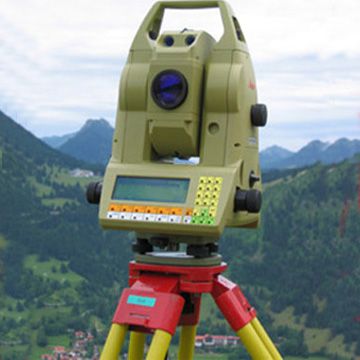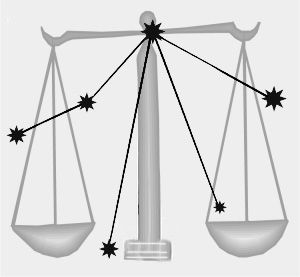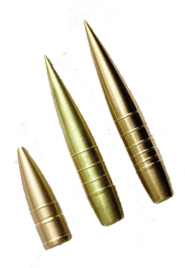People seem to like accuracy, even though they hate numbers. That is why there are so many kinds of measuring instruments, like the thermometer for quantifying temperature and the hygrometer which measures humidity. Usually these instruments are named using archaic stem forms, like baros (Greek for "weight") in barometer and alti (Latin for "high") in altimeter. And there is the pedometer, from the Greek pedo for foot, which, I think, measures how many feet you have.
Chronometer is a device to measure time (from the Greek chronos for "time"). But alas, this time gauge is more often called a watch—which it never does. Larger ones are called clocks, from the Old English clucge for "bell". The combination, clockwatcher, doesn't measure time at all, but rather stretches it out.
Put up a wet finger and you might be able to tell which way the wind is blowing... but you won't know how hard—at least not with any accuracy. For that you need an anemometer, so named because, you guessed it, the Greeks knew the wind and they called it anemos.
In some cases the stem form can be misleading. Specific gravity (the ratio of the density of a substance to the density of water), for example, is measured by a hydrometer which you might have thought measured water because of the Greek stem word for water is hydr. Using proper stem prefixes, I think the instrument should have been called a "cumulocomparohydrometer" (cumulo="to amass", comparo="compare" , hydro="water").

Speedometer and Odometer
The gravimeter measures gravity, and the accelerometer measures acceleration. As I recall, Dr. Einstein proved that gravity and acceleration are identical. Therefore, if Al is right, these instruments are measuring the same thing.
In a car, we have several gauges. Two of them are look-alikes—the speedometer and the tachometer. The first tells how fast the car is traveling, the second how rapidly the crankshaft is turning. Oddly enough, both words mean "measurer of speed" because tacho is from Greek meaning "speed". So which name would correctly identify the mph gauge?
In fact, tachometer has precedence because a device called that was originally invented to measure the speed of locomotives back in the 19th century. And in German cars, the speedometer is actually called a tachometer—although "geschwindigkeitsmesser" is also used when time permits.

Tachymeter
By instrument naming standards, it is the speedometer that is the misnamed gauge. Since the word "speed" comes from the Old English sped meaning "to prosper", a speedometer should be the device that measures wealth. Unfortunately, some unschooled, turn-of-the-century, American car-tinkerer called his velocity gauge a "speed-o-meter" and it stuck. Apparently he was unaware that such an instrument was already named by Croatian inventor Josip Belusic in 1888, who called it a velocimeter from the Latin velocitas.
Had the "speedometer guy" had any learnin' he might have snapped up "tachometer" before those educated automotive engineers claimed it for the crankshaft. If he had, perhaps the thing we now called a tachometer would have been labeled a "rotatometer" from the Latin rotāre. (Coincidently, there is also such a thing as a tachymeter which measures distances quickly—and probably should have been called something like a "enimomodovelometer" (enimo="distance", modo="measure", velo="quick".) There is also a tachymeter scale found on many men's watches… women don't usually care about speed.)

Libra
You have probably noticed that most instrument names end with -meter, which means to measure. It makes sense that measuring devices ought to end with this suffix. But this doesn't seem to be the case when measuring weight. That instrument is called a scale. Unfortunately the word has dozens of other meanings in different contexts, from musical to fishy. World scientists should start calling a balancing scale a gramometer (which apparently is what some are calling the instrument for measuring weed quantity) because it measures grams. And Americans could call it a "poundometer". But using traditional prefixes, it really should have been called a "librameter" for the Latin libra meaning "balancing scales", as seen in zodiac's seventh sign.
The most curious name for a calibrated device is yardstick which is now used mainly to mark off American football fields. The label is utterly gothic. It's parts, "yard" and "stick", have medieval heritage with no romance. Together the words purport little precision. And yet those two ancient words taken together have become the metaphor for metrics. For example, as Sigmund Freud said, "Soap is the yardstick of civilization." The yardstick should more properly be called "yardmeter" because it measures yards.
Along with yardsticks and metersticks, we have rulers and tape measures for sizing up short distances. For measuring distances traveled on land (miles or kilometres), we generally rely on the automobile device called the odometer. The word was formerly hodometer, from the Greek hodo for "way" but, over time the "h" got left by the wayside. In fact, the Roman device for measuring lengths along their interprovinces was called a hodometer.
Now think about this. If an odometer does not measure od (a hypothetical force once thought to be involved with magnetism,) what does it measure? How do scientists express the quantities of distance and length? Answer—they use meter (or metre to the un-American world) with or without a prefix, such as kilo-, centi-, etc. (Curiously, a micrometer is a millionth of a meter, as well as an instrument to measure such small amounts. You would think the device would be called a "micrometermeter".) Along with meter, gram and liter (gramme and litre for non-Americans) were was coined by the revolting French of the late 18th century.

We should measure
ammo in millimikos
The French can be forgiven for their faux pas, calling their new yardstick a meterstick (more probably a metrestick,) or just plain meter, because, at the time, heads were rolling. But the English should have known better than to adopt that française word. They should have realized that "meter" implies measuring—not just distances—but also mass, volume, pressure, applause… anything. Why not invent a new word for measuring lengths, like "miko" (from the Greek mikos for "length") to equal 39.39 inches? Then "metric" users around the world could measure how far they can go on a litre of petrol in "kilomikos", the size of their scars in "centimikos", and the calibre of their bullets in "millimikos". The device for measuring "mikos" would be a "mikometer", of course.
Or better yet, instead of meter (metre), why not use that old "hodo" notion of the Romans. In addition to the Olympic 100 "hodo" butterfly swim competition, there would be the 42.195 "kilohodo" runners' marathon, and automotive bragging rights in cubic "centihodos" of engine displacement. And, of course, instead of yardsticks or metersticks we would have "hodosticks".
But alas, it's too late. We are stuck with meter as a distance as well as a measuring implement. Therefore, just as photometers measure number of photons and viscometers tell you how viscous fluids are, likewise, the device that measures meters of length should be called a "meterometer"—the "yardstick" of measuring instruments.